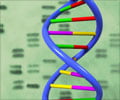Groundbreaking research funded by the British Home Office has revealed that at least a million young Britons have been criminalised for life due to the relentless expansion of the
Groundbreaking research funded by the British Home Office has revealed that at least a million young Britons have been criminalised for life due to the relentless expansion of the national DNA database.
Britain, which has the largest DNA database in the world, has an estimated one million people who have never been found guilty of any offence. What is even more alarming is the fact that some 100,000 of those listed are children.According to The Independent, the Human Genetics Commission has found that there is widespread mistrust among people presented with evidence of the size of the database, which now contains the genetic records of more than four million people.
The commission called for the database to be taken out of the control of the Home Office and police altogether, with one panel member warning that the database was a "first step towards a totalitarian state".
The commission also claims that about 40 per cent of young black men have been forced to provide samples, compared with 13 per cent of Asian men and nine percent of white men.
Genetic material is now taken from all people arrested by police, regardless of whether they are subsequently charged or convicted, and remains on file for life.
Offences covered include begging, being drunk and disorderly, taking part in an illegal demonstration and minor acts of criminal damage caused by children kicking footballs or, in one instance, throwing a snowball.
Advertisement
Panels in Birmingham and Glasgow delivered the damning verdict. After studying evidence about the database they called for an array of reforms designed to reassure the public that it would not be abused.
Advertisement
They warned that "Currently no distinction is made between someone who has been arrested for breach of the peace and someone who has murdered somebody."
It registered alarm over the "very lax security" protecting the database and concerns over "who had access to samples and profiles and for what purpose".
The panel members unanimously supported a nationwide publicity campaign to raise awareness of the database, using the Internet, posters, leaflets and school visits.
However, the proposed destruction of many DNA samples would be strongly opposed by ministers, who argue that they have proved vital to solving a succession of "cold cases".
A Home Office spokesman said: "The national DNA database is a key information tool which has revolutionised the way the police can protect the public through identifying offenders and securing more convictions. It provides the police on average with almost 3,500 matches each month."
He said there had been 41,717 crimes in 2006-07 that yielded DNA matches, including 452 homicides, 644 rapes, 222 other sex offences and more than 8,500 domestic burglaries.
Shadow Home Secretary Dominic Grieve said: "The Government should take heed of these findings. Currently the DNA database targets the innocent but not all the guilty."
Source-ANI
RAS/L












